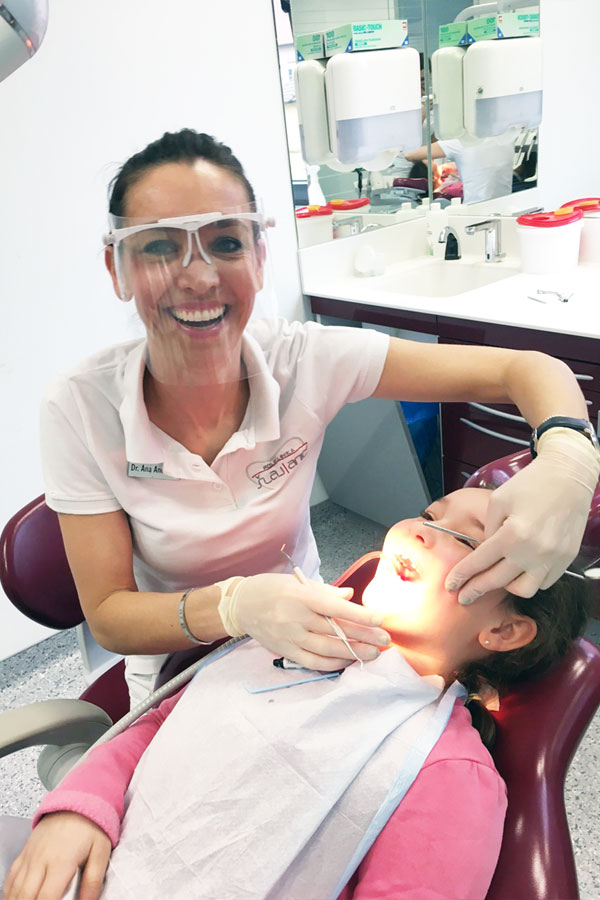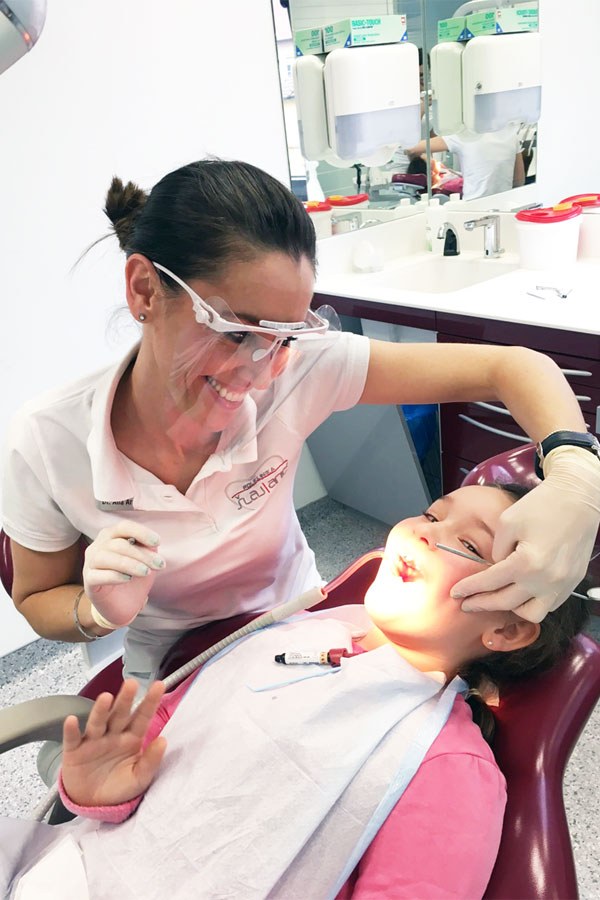Pediatric Dentistry For Happy Teeth
A timely planned and proper approach shapes the child into a patient who has no fear of the dentist
Pediatric Dentistry For Happy Teeth
A timely planned and proper approach shapes the child into a patient who has no fear of the dentist
LITTLE PATIENT
Timely planned and proper access to the child is of utmost importance. Thus, we prevent tooth decay and shape the child into a patient who has no fear of dentists.
FIRST ORTHODONTIC VISIT
The first visit to an orthodontist should be at the age of 7. Then we can already recognize the nature of the anomaly and explain to parents what are the treatment options.
EARLY INTERVENTION
With the early intervention of a dentist, we can avoid later extraction of permanent teeth, correct the reverse bite (lower teeth go over the upper ones) or cross bite.
PARENTAL CARE
Children’s activities often result in falls and blows, and sometimes tooth loss. The reaction in the first hour is extremely important: call or come for an examination.
Timely and knowledgeable approach of the dentist to the child is of utmost importance. In this way, we prevent tooth decay and shape the child into a patient who is not afraid of dental treatment.
The first visit to the dentist, as well as maintaining the hygiene of deciduous teeth occurs during their eruption. Milk teeth are the precursors of permanent ones but that doesn’t make them any less important. Healthy deciduous teeth save space for their heir and encourage proper jaw development.
Many important preparations can be made by the time a small patient can communicate independently with a dentist and take some responsibility for their own health.
It is beneficial for the child to visit the dental office several times, without dental treatments being conducted, because in this way the dentist will become a friendly figure for the child and the child will build confidence in the dentist. Once child trusts the dentist dental treatments will be painless and simple.




